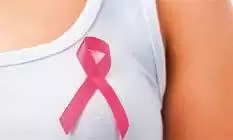Health
Mobile Screening Camps Identify Nearly 2,000 Cancer Cases

Mobile cancer screening camps in Tirupati district have identified a total of 1,969 cancer cases over the past 19 months. This initiative, conducted under the supervision of the Sri Venkateswara Institute of Medical Sciences (SVIMS), aims to improve early detection of cancer among the local population. The findings highlight oral cancer as the most common type, followed closely by breast and cervical cancers.
Launched on February 4, 2022, the Comprehensive Cancer Care Project (APCCC) has sought to address significant gaps in cancer screening. A national family health survey previously indicated that only one percent of India’s population had undergone cancer screening, underscoring the urgent need for such initiatives. Tirupati was selected as the pilot district for this program, with SVIMS serving as the nodal center.
Innovative Mobile Screening Solutions
As part of the project, two mobile screening units, known as “Pink Buses,” have been deployed to facilitate cancer screenings. These buses were funded through donations from the Ambuja Group, the Rotary Club, and the Vemireddy Prabhakar Reddy Foundation, each costing approximately Rs 3 crore. Each bus is staffed by a team of 13 members, including a medical officer, radiologist, mammography technician, nurses, and support staff, all of whom are women.
The mobile units conduct two screening camps daily, offering a range of services, including oral examinations, mammograms for women over 40, and Pap smears for women aged 35 and above. Over the last 19 months, approximately 446,000 individuals have been surveyed for symptoms, resulting in 28,393 undergoing diagnostic tests. The screenings confirmed 984 cases of oral cancer, 413 cases of breast cancer, and 572 cases of cervical cancer.
Addressing Risk Factors and Stigma
According to Dr. H Narendra, head of surgical oncology at SVIMS, the high incidence of oral cancer is largely attributed to tobacco chewing, alcohol consumption, and smoking. He emphasized the importance of not ignoring symptoms such as persistent mouth ulcers, loose teeth, or color changes in the mouth. Early detection can lead to simpler treatments and significantly better outcomes.
Dr. Narendra also highlighted the relevance of lifestyle changes in cancer prevention. He recommended quitting tobacco and alcohol, increasing the intake of fruits and vegetables, reducing fat and sugar consumption, engaging in daily physical activity, and ensuring vaccinations against Hepatitis-B and HPV.
Despite these efforts, oncologists note that stigma, fear, and financial constraints continue to deter many individuals from undergoing screenings. They encourage the public to utilize the free services, consult with doctors if results indicate abnormalities, and pursue any necessary treatments. Testing in private hospitals typically costs between Rs 5,000 and Rs 10,000, making the free screening camps a valuable resource for local communities.
Participants register using their Aadhaar numbers and receive a Unique Health ID. Following basic checks, suspected cases are referred to SVIMS, with staff from the Pink Buses ensuring follow-up care.
With positive results from the Tirupati pilot project, the state government plans to expand the mobile cancer screening program throughout Andhra Pradesh. Additionally, an International Centre for Advanced Cancer Research is being developed on the SVIMS campus to enhance cancer treatment accessibility and reduce the need for patients to seek care outside the state.
-

 World5 months ago
World5 months agoSBI Announces QIP Floor Price at ₹811.05 Per Share
-

 Lifestyle5 months ago
Lifestyle5 months agoCept Unveils ₹3.1 Crore Urban Mobility Plan for Sustainable Growth
-

 Science4 months ago
Science4 months agoNew Blood Group Discovered in South Indian Woman at Rotary Centre
-

 World5 months ago
World5 months agoTorrential Rains Cause Flash Flooding in New York and New Jersey
-

 Top Stories5 months ago
Top Stories5 months agoKonkani Cultural Organisation to Host Pearl Jubilee in Abu Dhabi
-

 Sports4 months ago
Sports4 months agoBroad Advocates for Bowling Change Ahead of Final Test Against India
-

 Science5 months ago
Science5 months agoNothing Headphone 1 Review: A Bold Contender in Audio Design
-

 Top Stories5 months ago
Top Stories5 months agoAir India Crash Investigation Highlights Boeing Fuel Switch Concerns
-

 Business5 months ago
Business5 months agoIndian Stock Market Rebounds: Sensex and Nifty Rise After Four-Day Decline
-

 Sports4 months ago
Sports4 months agoCristian Totti Retires at 19: Pressure of Fame Takes Toll
-

 Politics5 months ago
Politics5 months agoAbandoned Doberman Finds New Home After Journey to Prague
-

 Top Stories5 months ago
Top Stories5 months agoPatna Bank Manager Abhishek Varun Found Dead in Well









